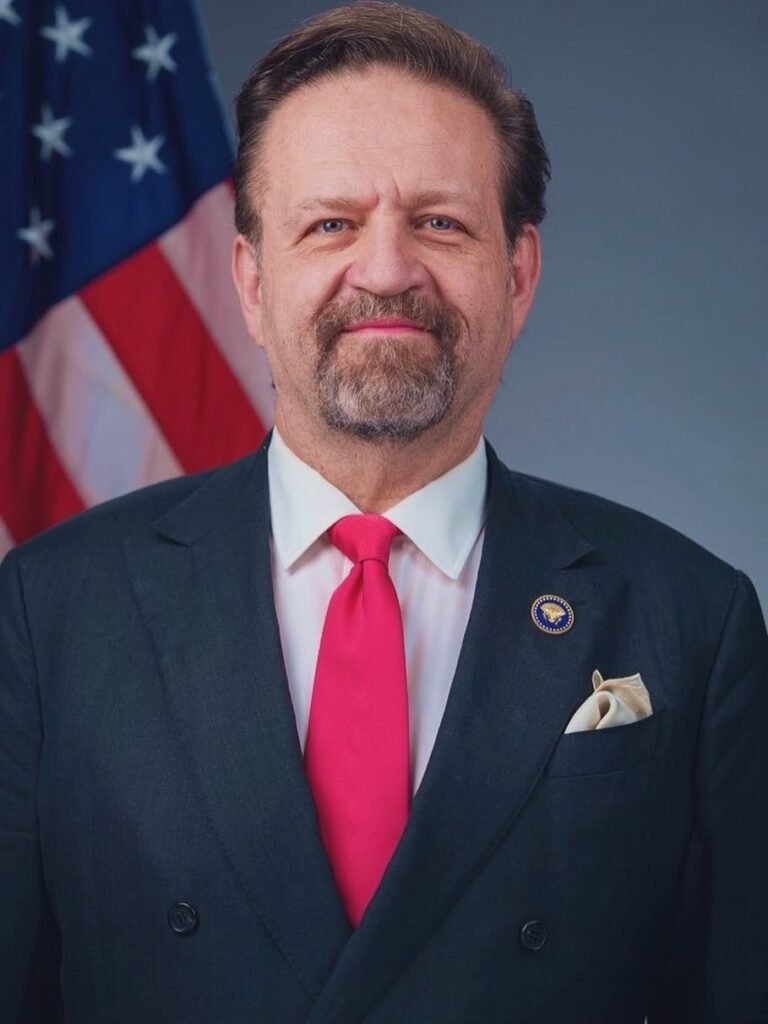Sebastian Gorka remains a name that sparks debate on both sides of the Atlantic. Born in the United Kingdom to Hungarian parents, Gorka has built a career that spans academia, media, and the highest levels of US government. His recent return to the White House as a senior counterterrorism official under Donald Trump has reignited interest in his background, views, and influence on security policy. For UK readers, Gorka’s story is not just about American politics—it is a window into the shifting landscape of global security and the personalities who shape it.
Early Life and British Roots
Sebastian Lukács Gorka was born in London in 1970. His parents had fled Hungary after the 1956 uprising, seeking refuge in Britain. Gorka spent his formative years in the UK before moving to Hungary in the early 1990s. He later became a naturalised US citizen in 2012. His British upbringing and education have often been cited as influences on his worldview, though his career has largely unfolded abroad.
Academic and Military Claims
Gorka’s academic credentials have been a source of both pride and controversy. He holds a PhD from Corvinus University in Budapest and has taught at several institutions, including the US Marine Corps University. However, some critics have questioned the rigour of his scholarship and his expertise in counterterrorism. While Gorka claims experience as a reserve intelligence soldier in the British Army’s Territorial Army, questions have been raised about the extent and nature of his service, with some analysts suggesting he may have overstated his role.
Rise to Prominence in US Politics
Gorka’s public profile soared after he joined the Trump administration in 2017 as Deputy Assistant to the President. He became known for his combative media appearances and his staunch defence of Trump’s security agenda. Gorka argued that the West faces an ideological battle against jihadist extremism and that this fight requires a clear-eyed focus on radical Islamic terrorism. His views have often been at odds with mainstream academic and policy circles, who argue for a more nuanced understanding of the roots of extremism.
Controversies and Criticisms
Gorka’s career has been dogged by controversy. Allegations have surfaced about his ties to far-right and antisemitic groups in Hungary, which he has consistently denied. Investigations by media and human rights organisations have highlighted his support for Hungarian nationalist organisations, though Gorka and his supporters insist he has never voiced hateful or antisemitic views. These allegations have led to calls for his resignation from various advocacy groups and even scrutiny over his US citizenship application.
His approach to counterterrorism has also drawn criticism. Experts in the UK and US have challenged his focus on ideology as the primary driver of terrorism, arguing that factors such as governance, poverty, and war play significant roles. Paul Pillar, a former CIA counterterrorism analyst, described Gorka as more of a showman than a serious scholar, a view echoed by other security experts.
Gorka’s Role in the Trump Administration
Gorka’s tenure in the White House was marked by internal power struggles and policy disagreements. He was closely aligned with Steve Bannon and the populist wing of the administration. His departure in August 2017 followed the exit of Bannon and the rise of more traditional military figures in Trump’s team. Gorka cited a loss of commitment to the “Make America Great Again” agenda as his reason for leaving, though White House officials suggested he had been forced out.
Despite his ousting, Gorka remained a vocal supporter of Trump’s policies and continued to appear on conservative media platforms. In 2025, he returned to the White House as Deputy Assistant to the President and Senior Director for Counterterrorism, a move that has reignited debate about his qualifications and influence.
Recent Headlines: UK Relevance
Gorka’s recent statements have placed him at the centre of UK-US relations. In January 2025, he publicly urged the UK government to repatriate Shamima Begum, the British woman who joined ISIS in Syria. Gorka argued that Britain should demonstrate its commitment to the US alliance by taking responsibility for its citizens held in Syrian camps. UK Foreign Secretary David Lammy rejected this call, insisting that Begum would not be allowed to return to Britain. This episode highlights the ongoing tensions between UK and US approaches to counterterrorism and citizenship.
Gorka has also made headlines for his hardline stance on immigration and domestic security. He has accused critics of the Trump administration’s deportation policies of “aiding and abetting” terrorists, a claim that has sparked backlash from civil liberties groups. These statements have fuelled debate in the UK about the balance between security and human rights.
Expert Insights and Official Statements
Gorka’s views continue to divide opinion. Some, like Andrew C. McCarthy of the National Review, defend Gorka as a knowledgeable and principled opponent of jihadist terror. Others, including former US National Security Adviser John Bolton, have dismissed him as a “con man” whose loyalty to Trump outweighs his expertise. Within the UK, analysts at institutions such as the London School of Economics have critiqued Gorka’s ideological approach, arguing that it risks oversimplifying complex security challenges.
The Media and Public Perception
Gorka’s combative style has made him a fixture on television and radio, both in the US and the UK. He has clashed with journalists from major outlets, including the BBC, accusing them of bias and “fake news”. His supporters see him as a fearless advocate for Western security, while his critics view him as a polarising figure whose rhetoric inflames rather than informs public debate.
Conclusion
Sebastian Gorka’s journey from London to Washington reflects the complex interplay between personal ambition, political ideology, and global security. His British roots and controversial career have ensured that he remains a subject of fascination and debate in the UK. As he continues to shape US counterterrorism policy, British audiences will watch closely to see how his ideas influence the transatlantic partnership and the ongoing struggle against extremism.
To read more click here

